-

“Photon counting in computed tomography is the holy grail”
Erik Fredenberg, a researcher in physics at KTH and GE, is working to implement photon-counting CT in clinics. To shorten lead times and reduce the radiation dose in patients, he is setting out to develop a framework for virtual clinical trials for the technology.
-

Ny Sverigechef till Boehringer Ingelheim
Australiensaren Paul Dunesky har arbetat inom Boehringer Ingelheim sedan 2013 – nu blir han Sverigechef.
-
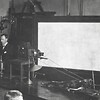
Brown Dog Affair: Djurförsöket som skakade Storbritannien
En intet ont anande terrier, två svenska djurrättsaktivister, en känd fysiolog, brittiska medicinstudenter och en staty som behövde polisskydd. Det är några av ingredienserna i "Brown Dog affair" – en konflikt om djurförsök som splittrade England i början av 1900-talet.
-
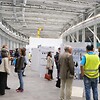
Neutronmöte i Lund samlar hundratals toppforskare
För första gången hålls en konferens knuten till den nya forskningsanläggningen ESS i Lund. Det är Institut Laue-langevin, ILL, i Frankrike och European Spallation Source, ESS, som tillsammans samlar neutronforskare från hela världen.
-
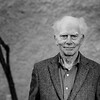
Cullbergstipendiet till fem läkare för studier av bland annat könsdysfori
Fem läkare tilldelas Cullbergstipendiet, som är uppkallat efter den nyligen bortgångne psykiatern och författaren Johan Cullberg.
-

40 miljarder i satsningar i Öresundsregionen – ”En enorm investeringsvåg”
Medicinska företag i Öresundsregionen investerar som aldrig förr, visar en ny rapport.
-

Investments worth 40 billion in the Öresund region – “A huge investment wave”
A new report reveals that medical companies in the Oresund region are investing like never before.
-
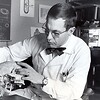
When carelessness, forgetfulness and coincidence become the researcher’s best friend
Forgetfulness, coincidence and a stroke of luck hardly make up a fruitful method of serious research. Or do they? Actually, a number of important medical advances have come about thanks to completely random incidents and the open-mindedness of scientists who were ready to think outside the box.
-
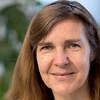
CAR-T therapies give continued hope: “Almost half of the patients have become disease-free”
When the first CAR-T therapies appeared, hopes were raised for the effective treatment for critically ill cancer patients. After a somewhat sluggish start, about 90 patients in Sweden have now been treated with this method. “Almost half of them have become disease-free, at least of those treated with Yescarta, which are the ones I know best,” says Gunilla Enblad, Chairman of the national working group for CAR-T treatment.
Få tillgång till allt innehåll på Life Science Sweden
Ingen bindningstid eller kortinformation krävs
Redan prenumerant? Logga in
Gäller endast personlig prenumeration.
Kontakta oss för en företagslösning.